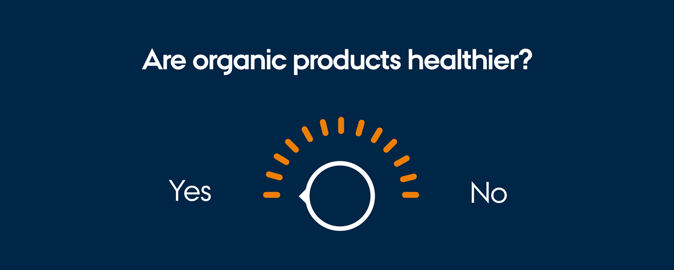Organic products are 30 percent healthier than conventional products. The consumers know. However, they don’t know how they know. Confused? Find out why here.
27.06.2018 | MICHAEL SCHRØDER
A cucumber is healthy. But is an organic cucumber healthier than a conventionally grown cucumber? Yes, many would say, and research does in fact show that most consumers would agree with this claim.
But it is a claim. Because there is no scientific evidence that this is indeed the case. Scientifically speaking, an organically grown cucumber is in itself no healthier than a conventionally grown cucumber. That’s a fact.
Organic products are healthier as a whole
But why are we as consumers so convinced that organic products are healthier? Researchers from Aarhus BSS and the University of Leeds have decided to offer an explanation. They do so in the article ”Implicit Statistical Learning in Real-World Environments Leads to Ecological Rational Decision Making”, which has been published in the recognised journal Psychological Science.
The researchers’ explanation is that organic products are in fact healthier than non-organic products if you look at organic products as a whole rather than compare the products one by one. The reason is that the percentage of healthy products is far greater in the organic segment than in the non-organic segment. Overall, the study shows that organic products are in fact 30 percent healthier on average than non-organic products.
And that is exactly what the consumers have already discovered. However, they have not gained this knowledge through normal learning - by reading about it or being told. And indeed science is claiming the exact opposite. In fact, consumers have gained this knowledge through simple observation - so-called implicit learning. This is the process by which babies learn to speak.
"Several studies show that as human beings we can be very irrational in our actions. However, we are not that stupid."
Jacob Lund Orquin, associate professor
The irrational and the rational consumer
Studies on implicit learning have mostly dealt with learning acquisition. What is novel about this study is that it supports the theory that implicit learning may also serve to explain rational behaviour. In this case, in terms of our understanding of aspects in our surroundings that are related to consumption, health and ecology.
“Several studies show that as human beings we can be very irrational in our actions. However, we are not that stupid. Our study shows that consumers also make highly rational choices when they use unconscious observations to understand the structure of the world around them,” says Associate Professor Jacob Lund Orquin from the Department of Management at Aarhus BSS. He has conducted the study together with postdoc Sonja Perkovic from Aarhus BSS and the University of Leeds.
Three studies
To reach this result, the researchers conducted three studies: A professional assessment of the healthiness of 59 food categories carried out by nine food and nutrition experts; a questionnaire survey among 637 consumers representative of the Danish population; and an eye-tracking study, which examined the eye movements and decision-making patterns of 71 Danes in relation to healthy products. In the last study, participants had to choose between a number of labelled and non-labelled food products.
The first study showed that food products are 30 percent more likely to be healthy if they are organic rather than non-organic. The reason is that organic products are often part of categories that require less processing. For example, organic products are more well-represented in food categories such as whole-grain pasta, brown rice, milk and eggs than in categories such as ready-made meals, sweets, chips and canned meat.
Danish eco-label wins
The second study showed that consumers not only agree completely with the nutrition experts when identifying the healthy food products. The consumers also get it right when they have to state the share of organic food products within each food category. Finally, consumers also see clear correlations between what is organic and what is healthy.
In the third study, the results from study 1 and 2 were further substantiated in a lab-based eye-tracking study measuring the eye movements of consumers. The study showed that consumers find it easy to grasp the correlation between ecology and healthiness if the world around them is organised in the same way as in a supermarket where organic products are 30 percent healthier.
Avoid senseless nudging
“Our studies show that consumers are more than able to behave in a rational manner when you place things in the right context. As consumers, we unconsciously learn from our surroundings - just like when babies learn a language without someone explaining it to them. We use this knowledge to make decisions,” says Orquin. In continuation of the study, he warns against the use of senseless nudging when trying to convince the consumers to make rational choices.
“Nudging assumes that people are irrational. However, that is not always the case. This means that you shouldn’t use nudging just for the sake of nudging,” says Orquin.
For more information:
Read the research article "Implicit Statistical Learning in Real-World Environments Leads to Ecological Rational Decision Making" (Psychological Science).
Read more about the researcher behind the study AssociatePprofessor Jacob Lund Orquin
Read more:
